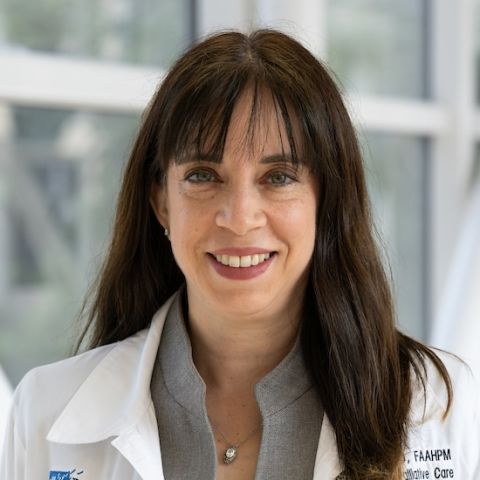Narseary Harris always knew she wanted to have a big family.
She and her husband, Vernal, had three sons. Unfortunately, two of them died due to complications from sickle cell disease.
The eldest, Paul, died at the age of 26. The second oldest, Solomon, died at the age of 33.
“You never get over this. It’s not something that you should expect to get over, but how you deal with each moment gets better,” said Harris in a PBS interview that aired nationally.
Her experience, along with the stories of eight others, were shared in a documentary called “Into the Night: Portraits of life and Death.” It explores the way people think about death.
After grieving over the loss of her two sons, Harris thought she had fully healed. But when she sat for interviews for the documentary, she realized she hadn’t.
“I was able to confront some dark places that I hadn’t allowed myself to go. I was able to cry. I haven’t allowed myself to cry or grieve in that way,” says Harris. “Having that experience of talking about it and facing that again, it continued the healing process for me.”
Harris has been using her experience as a way to help others. Her husband, Vernal, is the pastor of Prince of Peace Temple Church of God in Christ in Buffalo. They’ve spoken to their congregation and others around Western New York about hospice care. They want people to know that hospice is nothing to fear.
Never miss another Cancer Talk blog!
Sign up to receive our monthly Cancer Talk e-newsletter.
Sign up!“When we started hospice care for Solomon, everyone initially thought we had given up on our son. But then they saw his quality of life. He actually got better when hospice was coming to the house. They were surprised to see that hospice helped,” says Harris.
Information about Hospice and Palliative Care
For anyone considering hospice care for a loved one, talking with your oncologist is a good first step.
“Taking care of a loved one at the end of their life is, I believe, is one of the most profound and defining experiences of being a human being,” says Tracey O’Connor, MD, Associate Professor in the Department of Medicine, who provides care for patients with breast cancer at Roswell Park and also serves as Chairman of the Board for the Center for Hospice and Palliative Care. “Hospice helps takes care of the patient, by focusing on symptom management and quality of life, and also supports their families.”
Hospice programs provide services for patients who have a life expectancy of six months or less. Most patients receive care in their home.
Dr. O’Connor says patients should have conversations about their end-of-life care with their caregivers, family members and physicians.
“Having conversations about end of life can be challenging for both patients and their doctors. Oftentimes, these conversations happen too late because they can obviously be emotional discussions, and they take time and effort. Sometimes people can become upset and uncomfortable, but I think it’s so important to have conversations with patients when they do have a life-limiting illness. It is the only way to ensure that patients and their families are prepared and that their wishes regarding end-of-life care are honored.”
Hospice care is covered under Medicare, Medicaid and many private insurance companies. Also, hospice serves people of any age.
“After families bring in hospice, many of them say, ‘We wish we had called you sooner,’” says Dr. O’Connor.
Roswell Park’s supportive and palliative care experts can help direct patients to hospice services. Palliative care is available to patients to help them through any stage of their disease — perhaps because the side effects of their treatment are impacting their daily life. A team of experts at the cancer center work to make life easier and more comfortable for patients through pain management, nutrition advice, emotional support and other specialized services. If a patient or their caregiver decides it’s time to transition to hospice care, the palliative care team will guide the family through the process.
“We collaborate with hospice care providers throughout the region to ensure our patients get the best care. Our team meets daily to assess their needs. If a patient needs hospice services, we can refer them to an in-patient facility or transfer them to their homes. And we don’t stop caring for patients after they leave. We continue to work with that patient and their family right until the end-of-life,” explains Amy Allen Case, MD, FAAHPM, Clinical Chief, Department of Supportive and Palliative Care.
If you are interested in the support of Roswell Park’s supportive care team, please call 716-845-8214.


